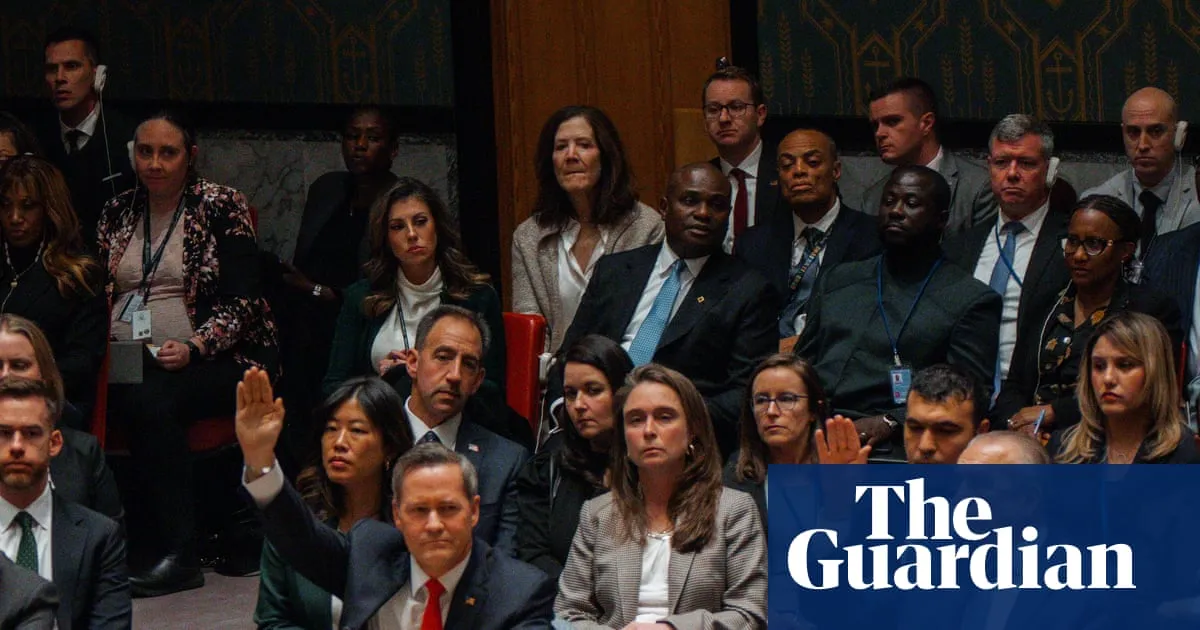
The UN Security Council has officially endorsed a series of proposals put forth by former President Donald Trump aimed at establishing a lasting peace in Gaza. This historic resolution, which passed with a unanimous vote of 13-0, saw abstentions from both China and Russia. According to the US envoy to the UN, Mike Waltz, this resolution is charting “a new course in the Middle East for Israelis and Palestinians and all the people of the region alike.”
Among the significant proposals is the deployment of an International Stabilisation Force (ISF) and a potential pathway toward a sovereign Palestinian state. The inclusion of references to an independent Palestine was a crucial aspect of the agreement, serving as a necessary concession to gain support from the Arab and Islamic nations. These nations are expected to provide peacekeepers for the proposed ISF.
However, just before the UN vote, Israeli Prime Minister Benjamin Netanyahu reiterated his government’s strong opposition to the establishment of a Palestinian state, raising concerns about Israel's willingness to comply with the UN-mandated proposals.
Supporters of the resolution are hopeful that it will lead to the immediate lifting of restrictions on the flow of aid into Gaza. The resolution also aims to facilitate the establishment of the ISF, which would fill the void left by an Israeli military withdrawal, and promote efforts for reconstruction along with a possible “pathway to Palestinian self-determination and statehood.”
It is crucial to note that the reference to Palestinian statehood was a compromise addition to an initial US draft that did not include it. The language used in the resolution remains vague and conditional, suggesting that a credible pathway to Palestinian self-determination will only be established once the Palestinian Authority undergoes reforms and reconstruction efforts in Gaza commence.
While the language of the resolution does not provide the firm commitment for the establishment of a Palestinian state alongside Israel that was desired by Arab and Islamic states, many delegates expressed readiness to accept the compromise to ensure the continuation of the current truce. James Kariuki, the UK chargé d’affaires, emphasized that any transitional arrangements must adhere to international law while respecting Palestinian sovereignty.
Amar Bendjama, the Algerian envoy representing the Arab bloc, indicated that they viewed the resolution as a step toward Palestinian sovereignty. He highlighted the importance of the resolution's annex, which he claimed addresses critical Palestinian rights, stating, “This resolution must be read in its entirety. Its annex is an integral part of it, and all parties must comply with it.”
Despite the resolution's passage, challenges remain. Reports suggest that Netanyahu, after initially accepting the resolution's wording, reversed his stance following backlash from the extreme right wing of his coalition. He asserted, “Our opposition to a Palestinian state on any territory has not changed.”
This resolution marks a rare instance of unified action by the UN on Gaza, especially following a two-year period of diplomatic stagnation during which over 71,000 Palestinians have reportedly lost their lives. The resolution's vagueness, particularly regarding the formation of the ISF and the Palestinian technocratic committee for governance in Gaza, leaves many aspects uncertain. No countries have yet committed to sending peacekeepers, and the criteria for reforming the Palestinian Authority remain unclear.
As European diplomats stress the urgency of quickly agreeing on the members of the Palestinian technocratic committee, the international community watches closely to see if these proposals will pave the way for lasting peace in the region.